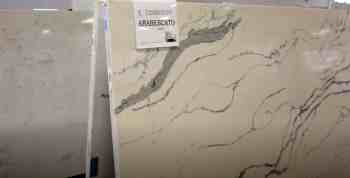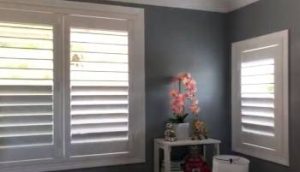Imagine a world where you could have the beauty of natural stone with the convenience and durability of engineered surfaces. In today’s fast-paced world, homeowners and designers alike are always on the lookout for materials that combine elegance with practicality.
Enter Polarstone Quartz, a brand that claims to offer the best of both worlds. But does it live up to the hype? In this comprehensive Polarstone Quartz review, we’ll delve into the pros and cons of this material and answer some of your most burning questions.
The Pros of Polarstone Quartz

- 1. Durability and Strength
Polarstone Quartz is known for its exceptional durability and strength. This engineered material is made from 93% natural quartz crystals and 7% resin binders, making it a strong contender for high-traffic areas.
It’s resistant to scratches, chips, and cracks, so it can withstand daily wear and tear with ease.
- 2. Low Maintenance
One of the significant advantages of Polarstone Quartz is its low maintenance requirements. Unlike natural stones like marble and granite, which require periodic sealing, quartz is non-porous and doesn’t need sealing or waxing.
This means it’s easy to clean, resists staining, and doesn’t harbor bacteria or viruses.
- 3. Wide Range of Colors and Patterns
Polarstone Quartz offers a diverse selection of colors and patterns, which allows homeowners and designers to find the perfect match for their vision. The brand’s designs range from subtle, monochromatic tones to more elaborate patterns that mimic the look of natural stone.
This versatility ensures that there’s a Polarstone Quartz option to suit any taste or design style.
- 4. Consistent Appearance
Because Polarstone Quartz is an engineered material, it has a more consistent appearance than natural stones.
This means fewer color variations and veining patterns, which can make it easier to match slabs and achieve a cohesive design.
The Cons of Polarstone Quartz

- 1. Cost
While Polarstone Quartz is a high-quality product, it comes with a relatively high price tag. It’s more expensive than some other quartz brands and can be on par with the cost of natural stone.
If you’re working with a tight budget, Polarstone Quartz may not be the best option for you.
- 2. Heat Sensitivity
Though Polarstone Quartz is durable and scratch-resistant, it’s not immune to heat. The resin used in its composition can become discolored or damaged under extreme heat.
It’s essential to use trivets or hot pads when placing hot pots or pans directly on your Polarstone Quartz countertops to avoid damage.
- 3. Not Suitable for Outdoor Use
Polarstone Quartz isn’t recommended for outdoor use due to its sensitivity to UV rays. Prolonged exposure to sunlight can cause discoloration and damage to the material.
If you’re looking for an outdoor countertop solution, you may need to explore other options.
FAQs: Polarstone Quartz
Yes, Polarstone Quartz is a high-quality material that offers durability, low maintenance, and a wide range of colors and patterns. However, it’s essential to weigh its pros and cons against your specific needs and budget before making a decision.
Polarstone has a reputation for producing high-quality, durable quartz surfaces. The brand is known for its unique designs that mimic natural stone and its commitment to customer satisfaction. Overall, Polarstone is considered a reliable and reputable brand in the quartz industry.
Polarstone Quartz is an engineered material made from 93% natural quartz crystals and 7% resin binders. It’s known for its durability, strength, and low maintenance requirements. The material is designed to mimic the look of natural stone while offering the practical benefits of an engineered surface.
Polarstone Quartz is manufactured in China, where the company has a state-of-the-art production facility. Despite being produced in China, Polarstone maintains strict quality control standards to ensure that their products are consistently reliable and high-quality.
While there are many quartz brands in the market that aim to mimic the look of natural stone, Polarstone is considered one of the most realistic options. Their designs are carefully crafted to replicate the intricate patterns and color variations found in natural stone slabs, making it an excellent choice for those seeking a realistic look.
The price of quartz can vary significantly depending on the brand, color, and pattern. Typically, more intricate and realistic patterns tend to be more expensive, as they require a more complex manufacturing process. Additionally, well-known brands like Polarstone, Caesarstone, and Cambria may have higher price points due to their reputations for quality and design. It’s important to compare prices and features across different brands and materials to find the best fit for your budget and needs.
In Conclusion
Polarstone Quartz is a reputable brand known for its durable, low-maintenance, and attractive engineered quartz surfaces. With a wide range of colors and patterns that closely mimic natural stone, it’s a popular choice for those seeking a realistic and high-quality option for their countertops.
However, it’s crucial to consider the potential drawbacks, such as cost, heat sensitivity, and unsuitability for outdoor use, before making a decision. We hope this comprehensive review has given you valuable insights into the pros and cons of Polarstone Quartz, helping you make an informed decision for your next home renovation project.



